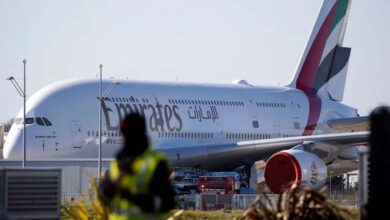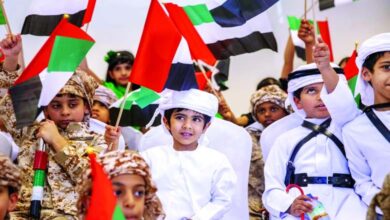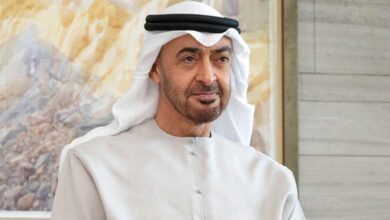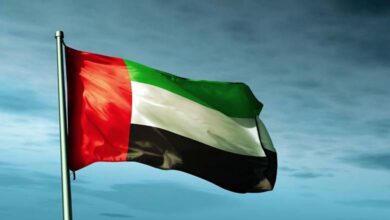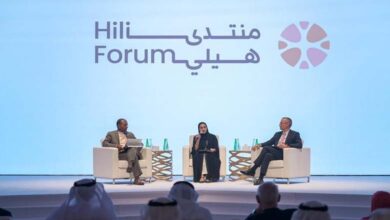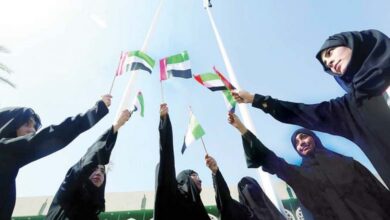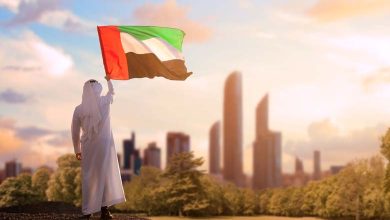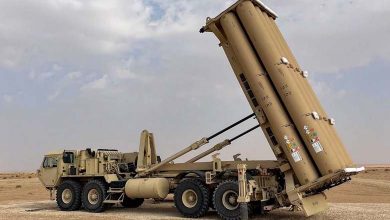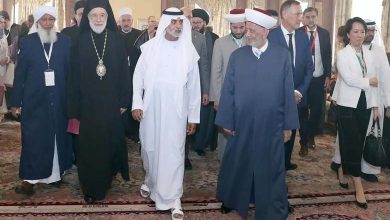UAE Flag Day: The Banner of Peace Soars in the Sky of Tolerance
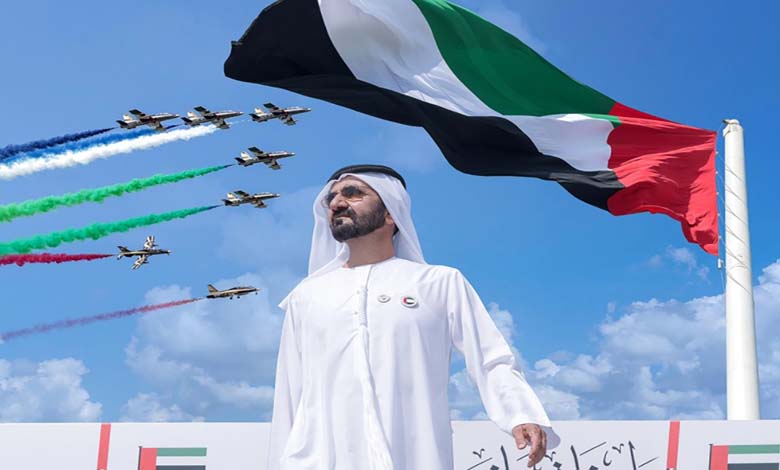
Rising high and proud, the flag of the United Arab Emirates flutters as a witness to a nation whose stature continues to grow, whose achievements multiply, and whose leadership becomes ever more firmly rooted — while citizens and residents gather around it to celebrate Flag Day.
-
The Role of the United Arab Emirates in Supporting the Humanitarian Response in Sudan
-
The United Arab Emirates launches ‘Gallant Knight 3′ Operation to aid Gaza
Every year on November 3, the UAE commemorates this occasion by raising the Union Flag high across the nation — simultaneously at 11 a.m. above ministries, government entities, and schools — while residential buildings are adorned with its vibrant colors.
His Highness Sheikh Mohammed bin Rashid Al Maktoum, Vice-President of the UAE, Prime Minister and Ruler of Dubai, had called on all ministries and institutions to raise the flag in unison at exactly 11 a.m.
In a post on his account on the platform X, he wrote: “Brothers and sisters… on November 3 we celebrate Flag Day — an annual occasion on which we renew our loyalty, our pledge, and our love for the banner of our nation, the symbol of our sovereignty, and the emblem of our Union.”
-
The United Arab Emirates Supports the Security and Stability System in Yemen’s Shabwah
-
The United Arab Emirates’ stance on the developments in the Gaza Strip remains constant
He added: “We call upon all citizens, residents, and institutions across the country to raise the national flag on Monday, November 3, at exactly 11 a.m., expressing the unity of the people and their rallying around their flag — a true embodiment of the values of union, belonging, and loyalty to the homeland and its leadership. May the UAE flag remain ever proud and lofty, and may it continue to wave gloriously.”
This year’s celebration comes at a time when the UAE’s international standing continues to rise, its partnerships expand, and its achievements grow — further strengthening the world’s confidence in its policies and diplomacy, which are dedicated to promoting peace, stability, and tolerance.
The UAE flag has witnessed decades of accomplishments and partnerships since it was first raised by the late Sheikh Zayed bin Sultan Al Nahyan on December 2, 1971, at the “Union House” in Dubai — a moment that paved the way for the prosperous era of President Sheikh Mohammed bin Zayed Al Nahyan.
-
United Arab Emirates’ Efforts Towards a Better Climate – $4.5 Billion Investments in Africa
-
United Arab Emirates’ Development Projects in Yemen Embody Its Central Humanitarian Role
Spreading Peace
This year’s Flag Day coincides with the continuation of the UAE’s cross-border initiatives promoting peace, harmony, and tolerance throughout the world.
In one of its most recent efforts, Sheikh Shakhbout bin Nahyan Al Nahyan, Minister of State, participated in the Conference on Supporting Peace and Prosperity in the Great Lakes Region held in Paris on October 30, with the participation of several nations and international and regional organizations to explore ways of enhancing humanitarian response and development in the region, particularly in eastern Democratic Republic of the Congo.
Acting on the directives of President Sheikh Mohamed bin Zayed, the UAE announced during the conference a commitment of 10 million USD to support joint humanitarian initiatives addressing the needs of affected communities in eastern Congo and neighboring countries, in cooperation with international partners and UN agencies.
-
The President of the United Arab Emirates, the most influential leader with a realistic and peaceful diplomatic policy
-
Gargash: The United Arab Emirates Human Rights Register is « internationally recognized»
The Sudan Crisis
On the same day, the UAE presented a comprehensive diplomatic and humanitarian roadmap to help end the crisis in Sudan. The plan was introduced by Ambassador Mohammed Abu Shahab, the UAE’s Permanent Representative to the United Nations, during a UN Security Council session discussing the escalating situation in El Fasher, North Darfur, after its recent seizure by the Rapid Support Forces.
The roadmap outlined two main pillars — one concerning the immediate developments in El Fasher and another addressing the wider national crisis — all aiming to achieve “a safe Sudan for all its people, free from extremism, terrorism, and ethnic violence.”
-
The vision of the United Arab Emirates and peace
-
The United Arab Emirates begins the first experiment to produce local immune cell therapy
The UAE reaffirmed that it would continue to support regional and international efforts to achieve a ceasefire and secure the peace and stability the Sudanese people aspire to.
During the meeting, the UAE also announced an additional donation of 100 million USD to support life-saving humanitarian operations in El Fasher, bringing its total aid to Sudan over the past decade to more than 3.6 billion USD.
Supporting Palestine
From Sudan to Palestine, the UAE has been actively working to help achieve a ceasefire in Gaza — efforts that culminated on October 10 with the announcement of a comprehensive truce.
-
Will Al Jazeera and its trumpets stop targeting the United Arab Emirates?
-
The United Arab Emirates is among the top 20 in 8 global competitive indicators related to tolerance and coexistence
The agreement came as part of the implementation of a peace plan proposed by U.S. President Donald Trump, which the UAE supported as a step toward ending the war, rebuilding Gaza, preventing the displacement of the Palestinian people, and advancing a comprehensive peace process.
These are goals the UAE has consistently pursued since the outbreak of the war on October 7, 2023. When announcing his plan in late September, President Trump expressed gratitude to Sheikh Mohamed bin Zayed for his vital role in achieving peace in the Middle East. During the signing of the agreement in Sharm El-Sheikh on October 13, he praised him again, describing him as “a great leader who has done a remarkable job — we value this immensely.”
This year’s Flag Day arrives as the UAE continues its efforts to uphold Palestinian rights and to promote the two-state solution as the only path to a just and lasting peace.
-
The United Arab Emirates is the first in the world to obtain ISO for the management of the health system
-
The United Arab Emirates is second in the world in business skills
In a recent move, Sheikh Mohamed bin Zayed met with António Costa, President of the European Council, at Al Shati Palace in Abu Dhabi on October 28, to discuss developments in the Middle East and the occupied Palestinian territories. Both leaders emphasized the importance of maintaining the Gaza ceasefire to ensure sustained humanitarian aid, and called for intensified international efforts to chart a clear course toward lasting peace based on the two-state framework.
They also stressed the necessity of strengthening diplomatic dialogue as the sole means of resolving crises in the Middle East and Europe, to safeguard regional and global stability. The UAE has repeatedly declared that any annexation of Palestinian land by Israel constitutes a “red line.”
-
The United Arab Emirates is the 28th in the world in the ranking of “Fintech” centers
-
The United Arab Emirates demands a balanced position on the future of the agreement on reducing oil production
Azerbaijan and Armenia
The UAE continues to use its strong international relations and active diplomacy to help resolve global conflicts, guided by its foreign-policy principles rooted in multilateral cooperation and dialogue as the key to peace and stability.
Roughly four months ago, on July 10, the UAE hosted an Azerbaijani–Armenian summit, marking the end of a 40-year-long conflict between the two South Caucasus nations and sealing a peace agreement.
The summit reflected both the depth of the UAE’s relations with the two countries and the growing international trust in its leadership as a neutral mediator committed to global peace.
Later, on August 9, the UAE welcomed the announcement by Azerbaijan and Armenia of a historic U.S.-brokered peace agreement, describing it as a major diplomatic achievement that affirmed the triumph of dialogue and enshrined the principles of good-neighborliness and peaceful coexistence.
-
Differences between Saudi Arabia and the United Arab Emirates on the increase in oil production
-
Election of the United Arab Emirates as a non-permanent member of the Security Council… And Mohammed ben Zayed: Reflects the trust of the world
The Ukrainian Crisis
The UAE’s accomplishments also include its ongoing efforts to end the Ukrainian crisis — efforts that have successfully led to 17 prisoner-exchange mediations since early 2024, the latest on August 24, which secured the release of 4,592 detainees. This represents a remarkable humanitarian and diplomatic success in an increasingly volatile conflict.
Reem bint Ibrahim Al Hashimy, Minister of State for International Cooperation and Special Envoy to Ukraine, led a high-level UAE delegation on an official visit to Kyiv aimed at strengthening trade, investment, and humanitarian ties — a reflection of the UAE’s comprehensive approach to supporting Ukraine’s stability, recovery, and long-term development.
-
The President of the United Arab Emirates issues a federal decree restructuring the Board of Directors of a bank.
-
With the opening of their consulates in Laayoune…The United Arab Emirates and Jordan affirm their constant positions in supporting the territorial integrity of Morocco
During the visit, she met with Ukrainian President Volodymyr Zelensky, conveying the greetings of President Mohamed bin Zayed.
These successive mediations demonstrate that the UAE has not merely acted as a neutral intermediary but as a genuine builder of peace — proving that diplomacy guided by human values can pierce even the walls of war.
In recognition of the UAE’s humanitarian efforts, President Zelensky awarded Reem Al Hashimy the Order of Princess Olga (First Class) on October 11 — one of Ukraine’s highest civilian honors.
Partnership Diplomacy
The UAE’s growing international standing is reflected in its active leadership and presence at major global summits and forums, where nations seek its insights and initiatives to address complex regional and global challenges.
-
US plans to sell 50 stealth F-35 fighter jets to the United Arab Emirates
-
United Nations Day 2025… the UAE as a global capital of peace
Recently, Sheikh Khaled bin Mohamed bin Zayed Al Nahyan, Crown Prince of Abu Dhabi, represented the President at the Asia-Pacific Economic Cooperation (APEC) Forum in South Korea.
The UAE also continues to play an active role in the G20 meetings this year at the invitation of South Africa, the current chair — marking its fourth consecutive and seventh overall participation, making it the most frequently invited Arab nation in the history of the G20.
Additionally, Sheikh Khaled represented the UAE President at the BRICS leaders’ virtual summit, opened by Brazilian President Luiz Inácio Lula da Silva on September 8.
In October 2024, the UAE took part for the first time as an official member in the 16th BRICS Summit in Kazan, Russia — a diplomatic milestone underscoring the world’s confidence in the UAE as an active partner shaping the emerging global economy.
-
United Nations Day: The UAE as a Leading Model of Partnership for Peace and Development
-
Arab Rejection of Palestinian Displacement Under Any Circumstances
These participations highlight the UAE’s prominent global position and growing influence in the international community. They also reflect its commitment to promoting global dialogue, sharing pioneering experiences, and solidifying its economic and commercial stature as a trusted partner linking the North and South, the East and West.
The UAE believes that global partnerships are the best path to overcoming today’s complex challenges — including food and energy security, climate change, and healthcare — as they are essential to achieving peace, prosperity, and sustainable development for all.
Eight State Visits — Ongoing Recognition
The celebration of Flag Day this year comes nearly two months after President Mohamed bin Zayed’s historic state visit to Angola, which capped a series of state visits to major world capitals over the past two years.
-
“Day of Valor”… When the World United for the UAE
-
America Approves Two Arms Deals for the UAE and Saudi Arabia
The Angola trip was his third state visit in 2025, following earlier ones to Turkey (July) and Italy (February).
Since assuming leadership on May 14, 2022, Sheikh Mohammed bin Zayed has conducted eight state visits, reflecting the UAE’s active diplomatic outreach and its expanding influence on the international stage.
A “state visit” represents the highest form of diplomatic engagement between world leaders, complete with special ceremonies — a testament to the high esteem and respect Sheikh Mohamed bin Zayed enjoys worldwide.
Before this year’s visits, he had undertaken five previous state visits — to Kuwait (November 2024), South Korea (May 28–29), China (May 30–31), France (July 2022), and Oman (September 2022) — each marked by a warm reception that reflected the depth of bilateral ties and the UAE’s prestigious global standing.
-
UAE’s call for peace: An arab appeal to protect innocents in Palestine
-
The UAE and 8 Arab States confirm rejection of the Palestinian issue settlement and displacement
The Safest Country in the World
With its leadership ever stronger and global trust ever deeper, the UAE continues to reap the rewards of its wise policies promoting peace, prosperity, and stability at home and abroad.
Among its most notable achievements, the UAE ranked first globally in the mid-2025 Safety Index published by Numbeo, confirming its position as the world’s safest country.
The ranking — which the UAE had also led earlier this year — is based on factors such as crime rates, citizens’ sense of safety day and night, and levels of violent and property crime.
These successive achievements, under the Union Flag and the leadership of President Sheikh Mohamed bin Zayed, further strengthen the status of the “House of Zayed” — reaffirming that the UAE’s “diplomacy of wisdom”, rooted in humanity, continues to serve peace, security, and prosperity for all humankind.



